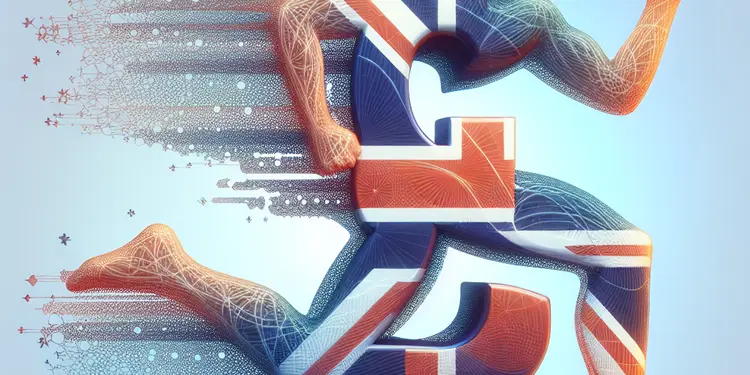
Find Help
More Items From Ergsy search
-
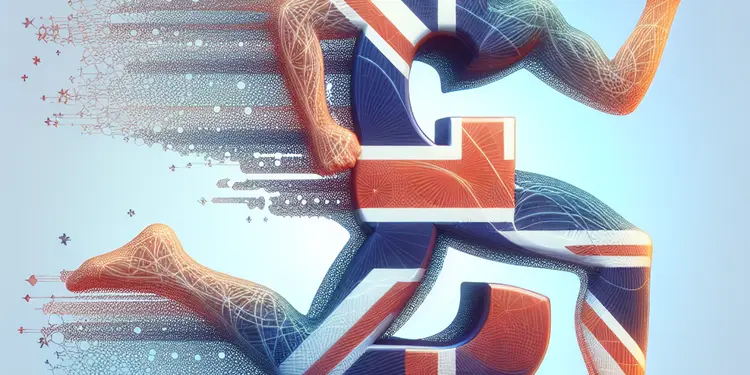
How does Huntington's disease affect movement?
Relevance: 100%
-

What is Huntington's disease?
Relevance: 82%
-
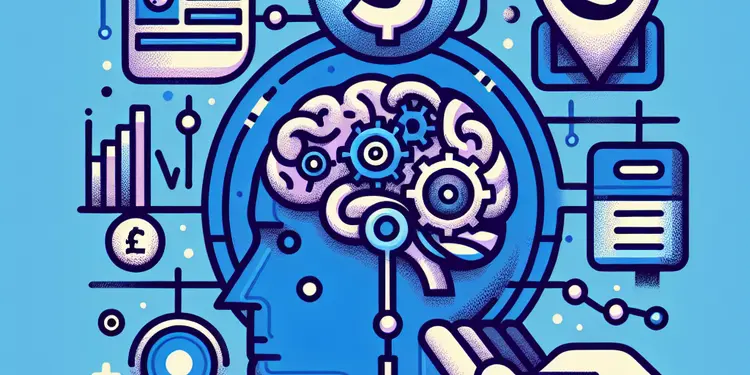
What are the symptoms of Huntington's disease?
Relevance: 78%
-
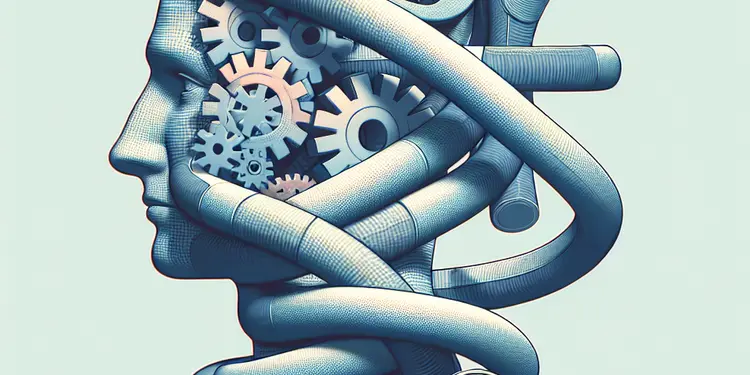
Is Huntington's disease fatal?
Relevance: 77%
-
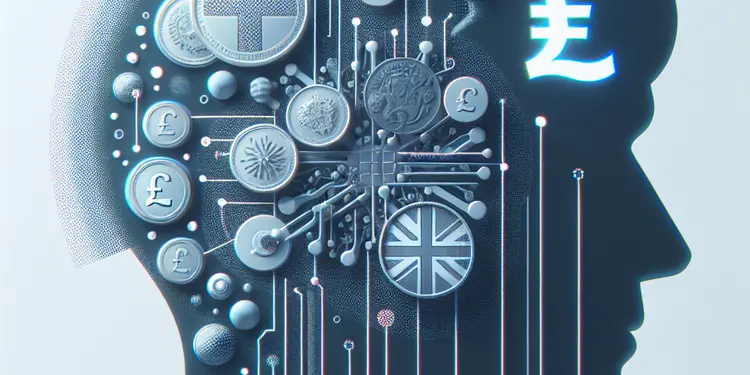
Can Huntington's disease be cured?
Relevance: 71%
-

How is Huntington's disease diagnosed?
Relevance: 70%
-
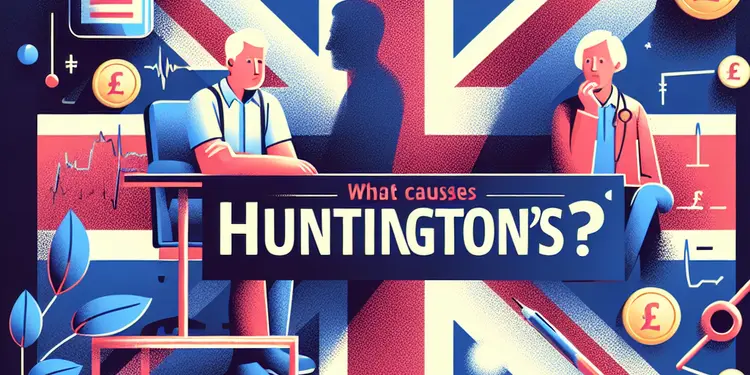
What causes Huntington's disease?
Relevance: 69%
-
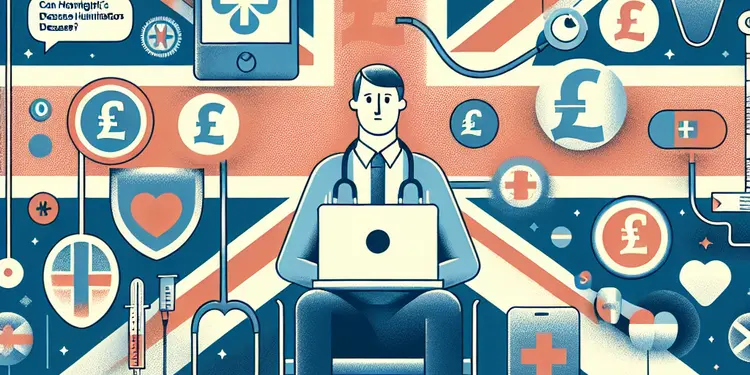
Can Huntington's disease be prevented?
Relevance: 69%
-

What research is being done on Huntington's disease?
Relevance: 69%
-
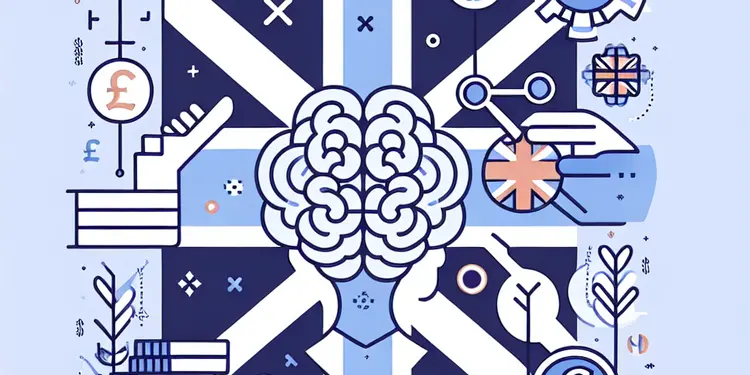
How does Huntington's disease affect cognition?
Relevance: 66%
-
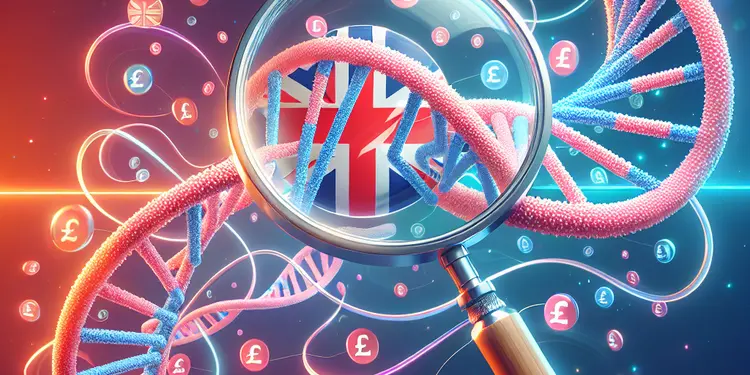
What is the role of genetic testing in Huntington's disease?
Relevance: 65%
-

At what age do symptoms of Huntington's disease typically appear?
Relevance: 65%
-
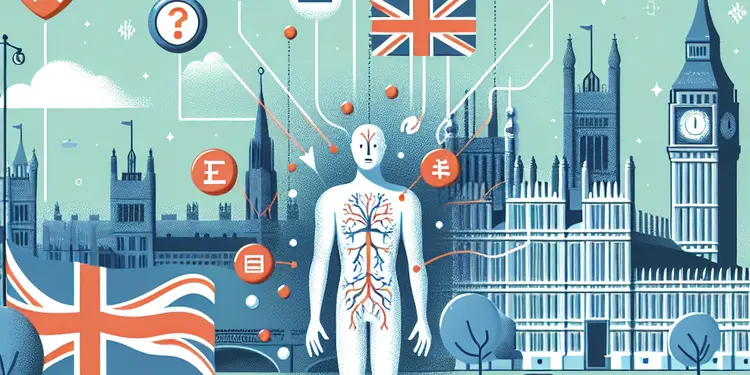
How does Huntington's disease affect emotions?
Relevance: 64%
-

Can lifestyle changes help manage Huntington's disease?
Relevance: 60%
-
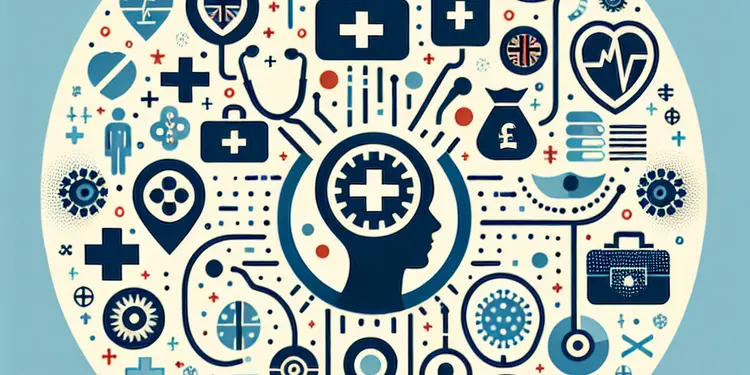
What kinds of specialists are involved in treating Huntington's disease?
Relevance: 60%
-

Are there treatments available for Huntington's disease?
Relevance: 53%
-
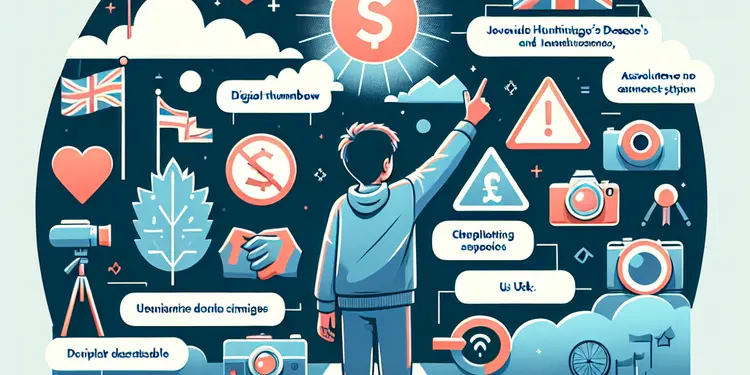
What is Juvenile Huntington's disease?
Relevance: 53%
-
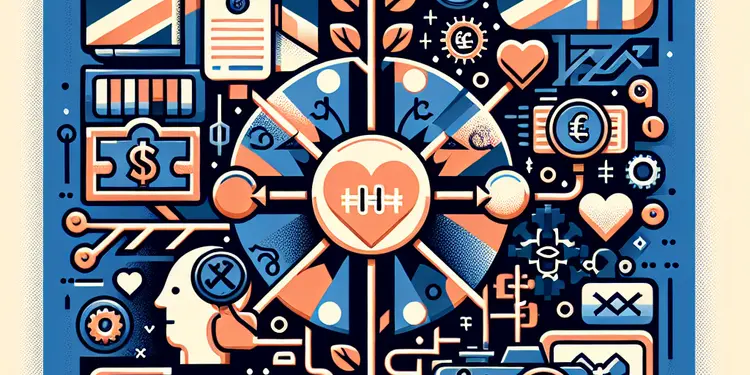
How is Huntington's disease inherited?
Relevance: 52%
-
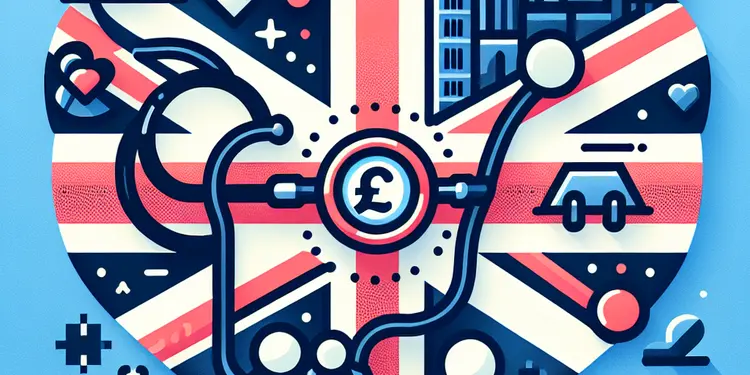
What support is available for families affected by Huntington's disease?
Relevance: 45%
-
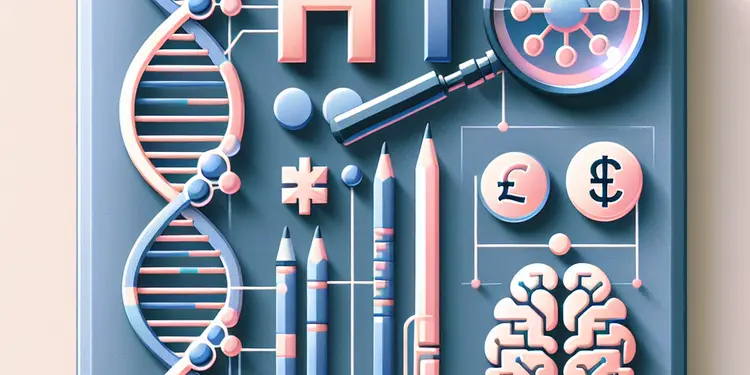
What role does the HTT gene play in Huntington's disease?
Relevance: 43%
-

What is the Bauhaus Movement?
Relevance: 43%
-

John Wesley: Faith That Sparked the Methodist Movement | Full Movie
Relevance: 33%
-

John Wesley: Faith That Sparked the Methodist Movement | Full Movie
Relevance: 32%
-
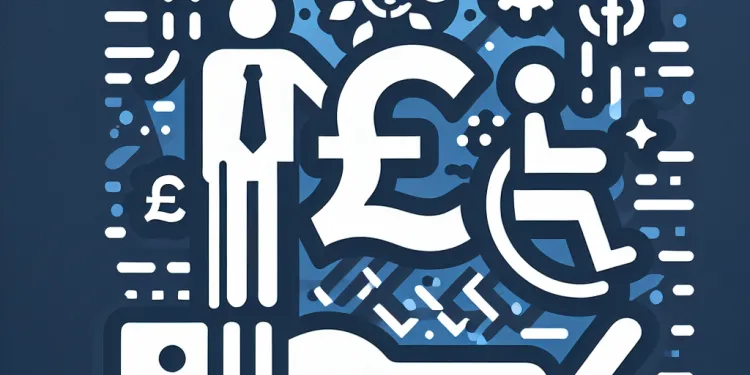
What is Parkinson's disease?
Relevance: 31%
-
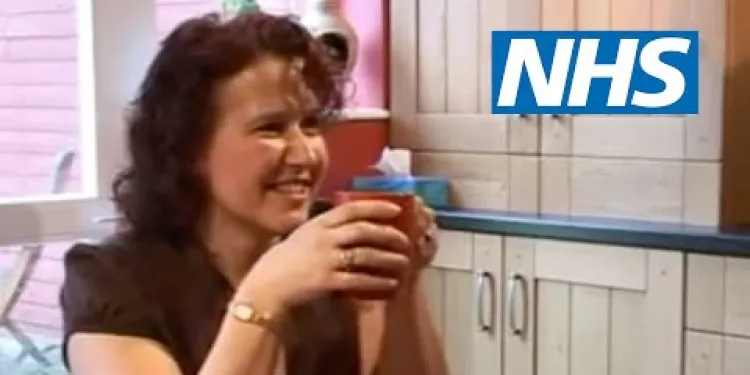
Parkinson's disease: Karen's story | NHS
Relevance: 27%
-
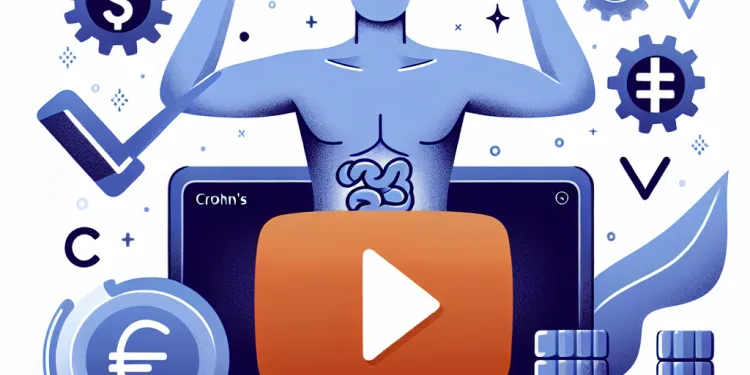
What are the common symptoms of Crohn's disease?
Relevance: 26%
-

Parkinson’s Disease and NHS RightCare: Long Term Condition Scenario
Relevance: 25%
-
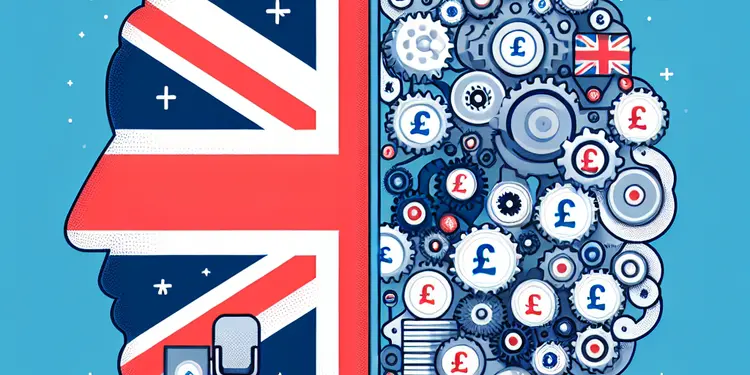
Are there different types of motor neurone disease?
Relevance: 24%
-
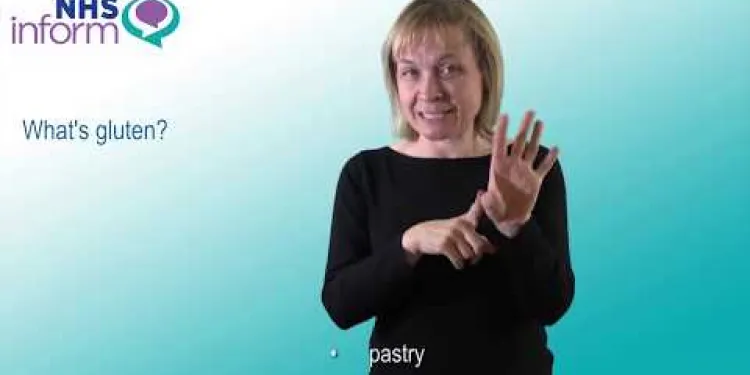
Coeliac disease
Relevance: 23%
-

Coeliac Disease: Session 1: What is Coeliac Disease?
Relevance: 23%
-

Can mosquitoes transmit any bacterial diseases in the UK?
Relevance: 23%
-
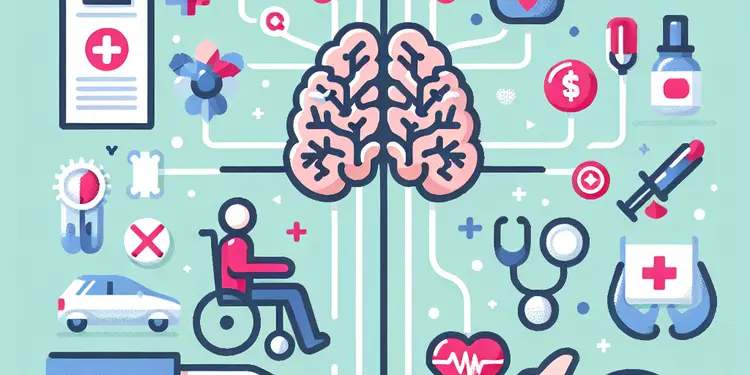
What are the primary symptoms of motor neurone disease?
Relevance: 22%
-

What is Lyme Disease?
Relevance: 22%
-
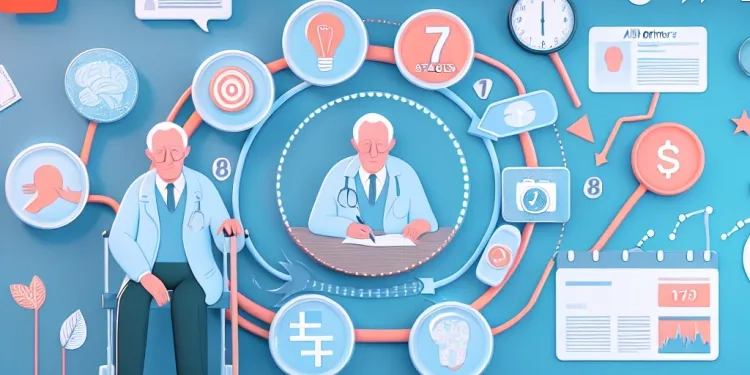
What are the stages of Alzheimer's disease?
Relevance: 22%
-

Liver disease | NHS
Relevance: 22%
-

Is Crohn's disease contagious?
Relevance: 22%
-
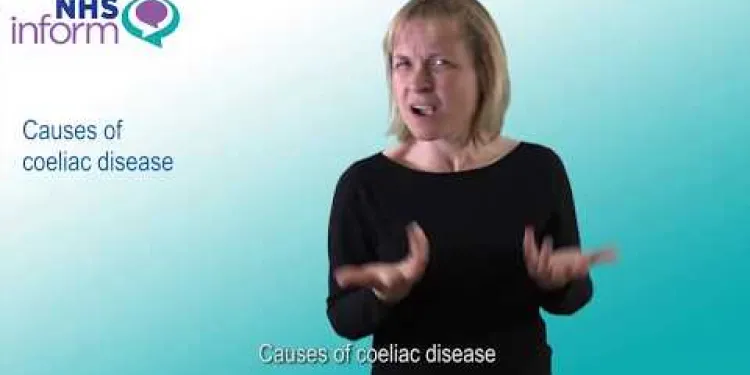
Causes of coeliac disease
Relevance: 22%
-

Lyme disease: What is it?
Relevance: 22%
-

What is motor neurone disease?
Relevance: 22%
-
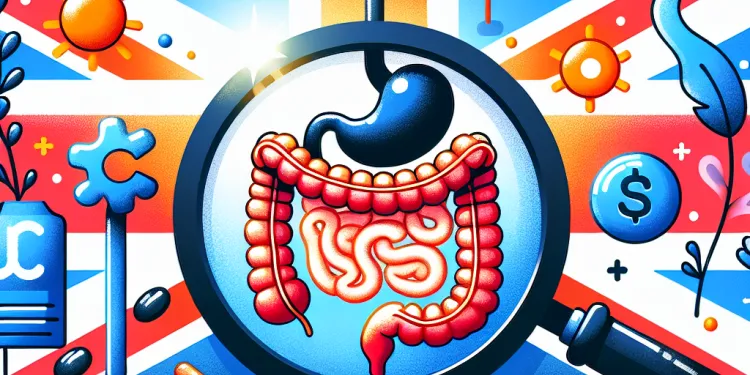
Is there a cure for Crohn's disease?
Relevance: 22%
Understanding Huntington's Disease
Huntington's disease is a genetic disorder that affects the brain, leading to progressive degeneration of nerve cells. One of the most noticeable impacts of Huntington's disease is on an individual's movement. This condition is caused by a genetic mutation that leads to the production of abnormal proteins, which gradually damage specific areas of the brain.
Impact on Movement
The movement difficulties associated with Huntington's disease are primarily due to the degeneration of neurons in certain regions of the brain, particularly the basal ganglia, which is involved in coordinating movement. As the disease progresses, individuals experience a range of motor symptoms that can significantly impact daily life. These symptoms are often categorized into two main groups: involuntary movements and impaired voluntary movements.
Involuntary Movements
Chorea is one of the hallmark symptoms of Huntington's disease, characterized by involuntary, unpredictable, and abrupt movements. These movements can affect any part of the body, including the limbs, face, and trunk, and can vary in severity. In addition to chorea, some individuals with Huntington's disease may experience dystonia, which involves sustained muscle contractions leading to abnormal postures or repetitive motions.
Impaired Voluntary Movements
Aside from involuntary movements, Huntington's disease also affects voluntary movements, making tasks that require fine motor skills challenging. Individuals may exhibit bradykinesia, which refers to slowed movement, and difficulty initiating movements. Coordination and balance can also be compromised, leading to an increased risk of falls. Over time, these symptoms can become more pronounced, severely impacting mobility and independence.
Progression of Motor Symptoms
The progression of motor symptoms in Huntington's disease can vary from person to person. Typically, movement-related symptoms begin subtly and become more pronounced over time. Early in the disease, individuals might notice slight problems with coordination or occasional involuntary movements. As the disorder advances, these symptoms tend to worsen, requiring modifications in lifestyle and possibly the use of mobility aids.
Treatment and Management
While there is currently no cure for Huntington's disease, several treatments can help manage movement symptoms. Medications such as tetrabenazine and deutetrabenazine are often used to help control chorea. Physical therapy can assist in maintaining mobility and balance, while occupational therapy can provide strategies for coping with daily tasks. Early intervention and a comprehensive care approach can greatly enhance quality of life for those living with Huntington's disease.
Conclusion
Huntington's disease poses significant challenges due to its impact on movement. Understanding and recognizing the range of motor symptoms is vital in providing appropriate care and support for those affected. While research continues toward finding a cure, current treatment strategies focus on managing symptoms and improving day-to-day function for individuals with Huntington's disease.
Understanding Huntington's Disease
Huntington's disease is an illness that affects the brain. It is passed down in families. It causes nerve cells in the brain to break down over time. This means it gets harder to move. Huntington's disease happens because of a change in one's genes. This change makes bad proteins that hurt certain parts of the brain.
Impact on Movement
Huntington's disease makes moving hard because it hurts the brain. A part of the brain called the basal ganglia is affected. This part helps us move. People with Huntington's disease have two main movement problems. These are movements they can’t control and problems with movements they want to do.
Involuntary Movements
Chorea is a big problem in Huntington's disease. It means having movements you don’t mean to make. These can happen in the arms, legs, face, or body. The movements are sudden and can be big or small. Some people might also have dystonia. This is when muscles stay tight, making the body take on strange shapes.
Impaired Voluntary Movements
Huntington's disease also makes it hard to move when you try. Things that need careful hand movements can be tough. People might move slowly or have trouble starting to move. Balance can be bad, too, which means it's easier to fall. Over time, these problems can get worse and make it hard to do things on your own.
Progression of Motor Symptoms
Movement problems in Huntington's disease can get worse over time. At first, they might be small, like having a hard time with balance or the odd unexpected movement. As time goes on, the problems can become bigger. This might mean changing how you live and using things to help you move well.
Treatment and Management
There is no way to cure Huntington's disease yet. But there are ways to help with movement problems. Medicines like tetrabenazine can help control unexpected movements. Physical therapy can help you keep moving and stay balanced. Occupational therapy can help you learn new ways to do daily tasks. The earlier you start with these, the better they can help.
Conclusion
Huntington's disease is hard because it changes how you move. It's important to know what kinds of movement problems can happen. This helps give the right care and support. People are looking for a cure, but for now, treatments help make life better for those with Huntington's disease.
Frequently Asked Questions
What is Huntington's disease?
Huntington's disease is a genetic disorder that causes the progressive breakdown of nerve cells in the brain, affecting movement, cognition, and behavior.
How does Huntington's disease affect movement?
Huntington's disease affects movement by causing involuntary jerking or writhing movements, muscle problems, and difficulty with posture and balance.
What are the early movement symptoms of Huntington's disease?
Early movement symptoms include subtle changes in coordination, minor involuntary movements, and difficulty in performing voluntary movements.
What types of involuntary movements are associated with Huntington's disease?
Involuntary movements include chorea (jerky, random movements), dystonia (muscle contractions), and tics, which can affect facial expressions and limb movements.
How does chorea manifest in individuals with Huntington's disease?
Chorea manifests as rapid, jerky, and uncontrolled movements of the limbs, face, and body that cannot be suppressed voluntarily.
Can Huntington's disease cause muscle stiffness?
Yes, Huntington's disease can cause muscle stiffness and rigidity, leading to slower movements and difficulty with tasks that require fine motor skills.
How is balance affected by Huntington’s disease?
Balance can be affected due to muscle weakness and involuntary movements, increasing the risk of falls and making it difficult to walk steadily.
Does Huntington's disease impact a person's ability to speak?
Yes, Huntington's disease can impact speaking abilities due to the involvement of muscles required for speech, potentially leading to slurred or slow speech.
Can Huntington's disease lead to swallowing difficulties?
Yes, as the disease progresses, it can affect the muscles involved in swallowing, leading to dysphagia and increasing the risk of choking.
How does Huntington’s disease affect eye movements?
Huntington's disease can impair the ability to control eye movements, causing difficulty in quickly moving the eyes from one target to another or tracking moving objects.
What are some strategies for managing movement symptoms in Huntington's disease?
Strategies include physical therapy, occupational therapy, assistive devices, medication, and speech therapy to help manage movement symptoms and improve quality of life.
Are there medications that can help with movement symptoms of Huntington's disease?
Yes, medications such as tetrabenazine or deutetrabenazine can help manage chorea, while other drugs may be used to address muscle rigidity and spasticity.
How does Huntington's disease progress over time concerning movement?
As Huntington's disease progresses, movement symptoms typically worsen, with increased severity of chorea, rigidity, and loss of voluntary control over movements.
What role does genetics play in Huntington's disease and its impact on movement?
Huntington's disease is caused by a genetic mutation in the HTT gene, which leads to the production of an abnormal protein that causes nerve cell damage affecting movement control.
How does Huntington's disease compare to other movement disorders?
Unlike conditions such as Parkinson's disease, Huntington's disease is primarily characterized by additional cognitive and psychiatric symptoms alongside its movement disorders.
What is the relationship between Huntington's disease and motor skills?
Huntington's disease impairs motor skills by affecting the ability to perform purposeful, voluntary movements and skills requiring dexterity and coordination.
Does Huntington’s disease affect both gross and fine motor skills?
Yes, both gross motor skills like walking and running, as well as fine motor skills like writing and buttoning a shirt, can be impaired.
How do physical therapists help patients with Huntington's disease manage movement symptoms?
Physical therapists assist with exercises to improve strength, flexibility, posture, balance, and coordination, which can help manage symptoms and maintain mobility.
Can diet and nutrition impact the movement symptoms of Huntington's disease?
While there is no specific diet to cure Huntington's disease, maintaining good nutrition can help support overall health and may aid in managing some symptoms.
Are there any surgical options to address movement issues in Huntington's disease?
Currently, there are no surgical interventions specifically for Huntington's disease movement symptoms, but research continues into potential future treatments.
What is Huntington's disease?
Huntington's disease is an illness that affects the brain. It makes it hard for people to move and think. It's something people are born with, but the signs usually start when they are older.
If you or someone you know has trouble understanding this, try using pictures or videos to help explain. You can also ask someone to read it with you.
Huntington's disease is a problem with genes. It makes brain cells stop working over time. This affects how you move, think, and behave.
How does Huntington's disease affect movement?
Huntington's disease makes it hard to move your body like you want. It happens because parts of the brain stop working well.
Here is how it can affect movement:
- It might make your arms or legs move when you don’t want them to.
- You could have trouble balancing.
- It might be hard to swallow food or drinks.
- You could have stiff muscles.
Here are some things that might help:
- Ask a doctor or therapist for exercises to help with balance and movement.
- Use special tools to help with eating and drinking.
- Rest when you get tired.
These changes can help make moving easier.
Huntington's disease makes it hard to move properly. It can cause jerky and twisting movements that you can't control. It can also make your muscles stiff and make it hard to stand or keep your balance.
What are the first signs of Huntington's disease in how someone moves?
Huntington's disease can make your body move in ways you can't control. This might look like:
- Small, jerky movements you don't mean to make.
- Having trouble keeping balance.
- Stiff or hard-to-move muscles.
- Finding it hard to talk clearly.
If you notice these signs, it can help to talk to a doctor. They can give you advice and ways to make things easier. Using videos or pictures might help understand more about these signs. You can also ask someone you trust to help explain.
At first, you might notice small changes in the way you move. It can be hard to do things you want to do. Your body might move on its own sometimes.
What body movements happen with Huntington's disease?
Huntington's disease can make your body move in ways you can't control. These movements can be jerky or shaky. Sometimes, it might look like you're dancing or twitching without wanting to. If you notice these movements, it’s important to talk to a doctor who can help.
Tips: You can ask grown-ups or a doctor for more help or use videos to learn more.
Sometimes, our bodies move in ways we don't want them to. This can include:
- Chorea: This means your body makes jerky and random movements.
- Dystonia: This means your muscles tighten up when they shouldn't.
- Tics: These are little movements you don't plan, like blinking or moving your arms suddenly.
These movements can change how your face looks or how your arms and legs move.
Tools like stress balls or soft music can help calm your body. Also, talk to someone you trust if you need more help.
What is chorea like in people who have Huntington's disease?
Chorea is a kind of movement that some people with Huntington's disease have. It means they might have extra movements they can't control.
These movements can look like:
- Jumps or twitches
- Waves or shakes
- Movements that seem like dancing
If you want to learn more about this, or if it is hard to understand, talking to a doctor or using pictures and videos can help.
Chorea looks like fast, jerky, and wiggly movements of the arms, legs, face, and body. You can't stop these moves by yourself.
Does Huntington's disease make muscles feel stiff?
Yes, Huntington's disease can make your muscles stiff and tight. This makes it hard to move quickly and do things that need careful hand movements.
How does Huntington’s disease affect balance?
Huntington's disease can make it hard to balance.
People with this disease might feel wobbly or unsteady.
They might have trouble walking straight.
Sometimes they might fall down easily.
If you know someone with Huntington's, they might use a walking stick or hold onto things for support.
It can help to have a safe space with no clutter.
Balance can be a problem if muscles are weak or move on their own. This can make it easier to fall and harder to walk properly.
Can Huntington's disease make it hard to talk?
Yes, Huntington's disease can make talking hard. It can change how your muscles work, which can make your speech sound slow or slurred.
Does Huntington's disease make it hard to swallow?
Yes, the sickness can make it hard to swallow. This means it is easier to choke on food or drink.
How does Huntington’s disease affect eye movements?
Huntington's disease can make it hard to move your eyes.
People with this disease might have slow or jerky eye movements.
Using simple tools like picture cards can help understand what someone is looking at.
Drawing or pointing can also help to show what you want to say if eye movements are difficult.
Huntington's disease can make it hard to control your eyes. You might find it difficult to move your eyes quickly to look at something new or to follow things that are moving.
You can try these ideas to help:
- Ask someone to help guide you when looking at things.
- Use a finger to point at where you need to look.
- Practice looking from one thing to another slowly.
How can you help manage movement problems in Huntington's disease?
People with Huntington's disease can have trouble moving. Here are some simple ways to help:
- Do gentle exercises to stay strong and move better.
- Work with a physiotherapist who knows about Huntington's disease.
- Use walking aids like canes or walkers if needed.
- Make your home safe by removing things that can cause falls.
- Ask your doctor about medicines that might help with movement.
- Talk to a support group for more ideas and help.
There are different ways to help. You can try exercises with a physical therapist or learn daily skills with an occupational therapist. Tools that help you do things more easily, taking medicine, or practicing talking with a speech therapist can make moving easier and life better. Ask someone who can help you to find the best tools and people for you.
Do some medicines help with moving problems in Huntington's disease?
Yes, there are some medicines that can help. Tetrabenazine or deutetrabenazine can help with movements. There are other medicines to help if your muscles are stiff or tight.
What happens to movement when someone has Huntington's disease?
Huntington's disease is an illness that affects the brain. Over time, it can change how a person moves. People might find it hard to control their muscles. Movements might be jerky or shaky. This can make walking, talking, and other movements difficult.
Here are some tips to help:
- Use simple exercises to keep moving.
- Ask for help from family, friends, or carers.
- Use tools like walking sticks or special chairs.
- Try to stay calm and rest when tired.
As Huntington's disease gets worse, moving becomes harder. People might have more jerky movements, muscles can get stiff, and it can be tough to control how they move.
If you have trouble reading or understanding, here are some things that might help:
- Reading out loud can make it easier.
- Ask someone to read with you or help explain the words.
- Take breaks if the words are hard.
How do genes cause Huntington's disease and affect movement?
Huntington's disease happens because of a change in a gene called HTT. This change makes a protein that hurts nerve cells. This can make it hard to control how you move.
How is Huntington's disease different from other movement problems?
Huntington's disease affects the body and the mind. It can make it hard to move and also changes how a person thinks and feels. This is different from Parkinson's disease, which mostly affects movement.
How does Huntington's disease affect how we move?
Huntington's disease is an illness that can make moving difficult.
It can make muscles shaky and hard to control.
This can make walking, talking, and other movements tough.
Using pictures can help understand how the body works.
Talking with others can also help understand better.
Huntington's disease makes it hard to move your body properly. It affects how you can do things like walking or using your hands carefully.
It is a good idea to use tools that help you stay steady. You could use a walking stick or a special spoon to make eating easier. These tools can help you do things more easily.
Does Huntington's disease affect big movements and small movements?
Huntington's disease can make it hard to move. It can affect big movements like walking or jumping. It can also affect small movements like writing or buttoning a shirt.
If you need help, you can try using bigger buttons, a special pen grip, or talk to an occupational therapist. They can help make things easier.
Yes, big movements like walking and running, and small movements like writing and buttoning a shirt, can have problems.
How can physical therapists help people with Huntington's disease move better?
Physical therapists are people who help others move their bodies safely. They can teach exercises that make muscles stronger and improve balance.
If you have difficulty moving because of Huntington's disease, a physical therapist can show you special ways to walk or sit. This can help prevent falls and make everyday activities easier.
It is important to practice these exercises regularly. Using a calendar to remember exercise times can be helpful. Listening to music while exercising may also be fun and motivating.
Physical therapists help people move better. They show you exercises that make your body stronger and more flexible. They also help you stand up straight and keep your balance. This can help you feel better and move more easily.
If you find reading hard, you can use tools like audiobooks or ask someone to read with you.
Can food and nutrition change the movement problems in Huntington's disease?
People with Huntington's disease may have trouble moving. Eating healthy food might help them. It's good to eat fruits, vegetables, and proteins. Speak to a doctor or dietitian for advice. They can help make a good food plan.
There is no special food that can fix Huntington's disease. But, eating healthy food can help you stay strong and might help with some symptoms.
Can surgery help with movement problems in Huntington's disease?
Sometimes, people with Huntington's disease might have trouble moving. Doctors want to help, so they look for ways to make things better. Surgery is one way they try to help.
Surgery means a doctor will do an operation. An operation is when a doctor uses special tools to fix or change something in the body. But not everyone with Huntington's disease can have surgery.
Doctors will talk with the person and their family to decide if surgery might help. They want to make sure it is the best choice. People can also use other ways to help with movement, like:
- Physical therapy: Exercises to help the body move better.
- Medicine: Pills or liquids that might help with movement problems.
It's important to talk to a doctor or nurse to find the best way to help with movement.
Right now, doctors don't have any surgeries to help with the movement problems caused by Huntington's disease. But scientists are working hard to find new ways to help in the future.
Helpful tools like picture books or story apps can make learning about this easier. Talking to a trusted adult can also help if you have questions.
Useful Links
This website offers general information and is not a substitute for professional advice.
Always seek guidance from qualified professionals.
If you have any medical concerns or need urgent help, contact a healthcare professional or emergency services immediately.
Some of this content was generated with AI assistance. We’ve done our best to keep it accurate, helpful, and human-friendly.
- Ergsy carfully checks the information in the videos we provide here.
- Videos shown by Youtube after a video has completed, have NOT been reviewed by ERGSY.
- To view, click the arrow in centre of video.
- Most of the videos you find here will have subtitles and/or closed captions available.
- You may need to turn these on, and choose your preferred language.
- Go to the video you'd like to watch.
- If closed captions (CC) are available, settings will be visible on the bottom right of the video player.
- To turn on Captions, click settings .
- To turn off Captions, click settings again.
More Items From Ergsy search
-

How does Huntington's disease affect movement?
Relevance: 100%
-

What is Huntington's disease?
Relevance: 82%
-

What are the symptoms of Huntington's disease?
Relevance: 78%
-

Is Huntington's disease fatal?
Relevance: 77%
-

Can Huntington's disease be cured?
Relevance: 71%
-

How is Huntington's disease diagnosed?
Relevance: 70%
-

What causes Huntington's disease?
Relevance: 69%
-

Can Huntington's disease be prevented?
Relevance: 69%
-

What research is being done on Huntington's disease?
Relevance: 69%
-

How does Huntington's disease affect cognition?
Relevance: 66%
-

What is the role of genetic testing in Huntington's disease?
Relevance: 65%
-

At what age do symptoms of Huntington's disease typically appear?
Relevance: 65%
-

How does Huntington's disease affect emotions?
Relevance: 64%
-

Can lifestyle changes help manage Huntington's disease?
Relevance: 60%
-

What kinds of specialists are involved in treating Huntington's disease?
Relevance: 60%
-

Are there treatments available for Huntington's disease?
Relevance: 53%
-

What is Juvenile Huntington's disease?
Relevance: 53%
-

How is Huntington's disease inherited?
Relevance: 52%
-

What support is available for families affected by Huntington's disease?
Relevance: 45%
-

What role does the HTT gene play in Huntington's disease?
Relevance: 43%
-

What is the Bauhaus Movement?
Relevance: 43%
-

John Wesley: Faith That Sparked the Methodist Movement | Full Movie
Relevance: 33%
-

John Wesley: Faith That Sparked the Methodist Movement | Full Movie
Relevance: 32%
-

What is Parkinson's disease?
Relevance: 31%
-

Parkinson's disease: Karen's story | NHS
Relevance: 27%
-

What are the common symptoms of Crohn's disease?
Relevance: 26%
-

Parkinson’s Disease and NHS RightCare: Long Term Condition Scenario
Relevance: 25%
-

Are there different types of motor neurone disease?
Relevance: 24%
-

Coeliac disease
Relevance: 23%
-

Coeliac Disease: Session 1: What is Coeliac Disease?
Relevance: 23%
-

Can mosquitoes transmit any bacterial diseases in the UK?
Relevance: 23%
-

What are the primary symptoms of motor neurone disease?
Relevance: 22%
-

What is Lyme Disease?
Relevance: 22%
-

What are the stages of Alzheimer's disease?
Relevance: 22%
-

Liver disease | NHS
Relevance: 22%
-

Is Crohn's disease contagious?
Relevance: 22%
-

Causes of coeliac disease
Relevance: 22%
-

Lyme disease: What is it?
Relevance: 22%
-

What is motor neurone disease?
Relevance: 22%
-

Is there a cure for Crohn's disease?
Relevance: 22%


